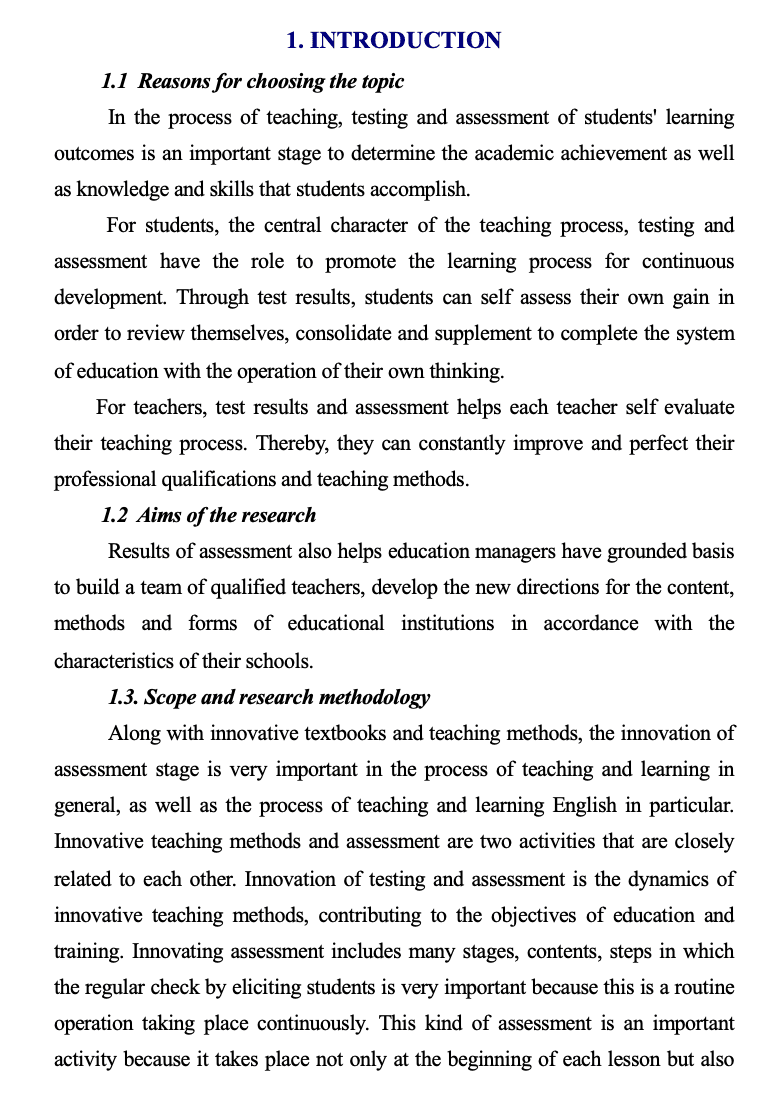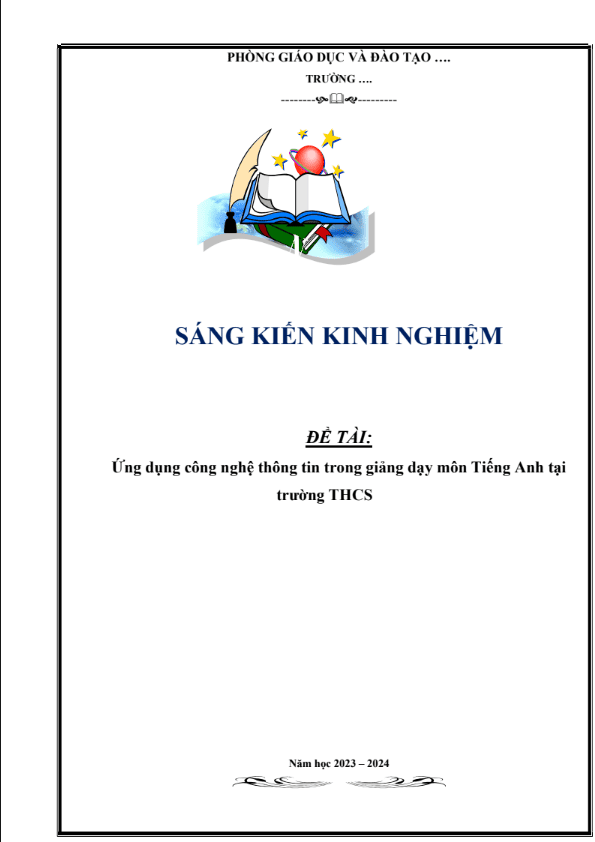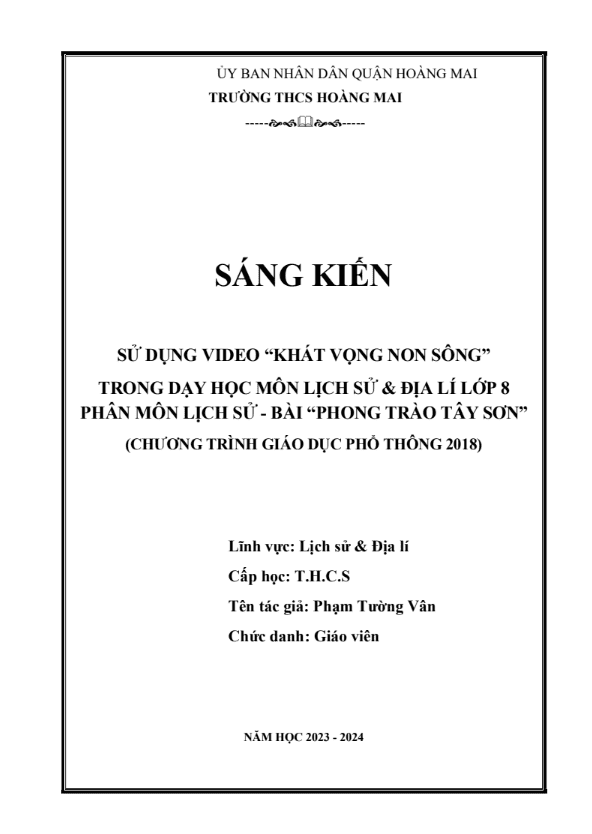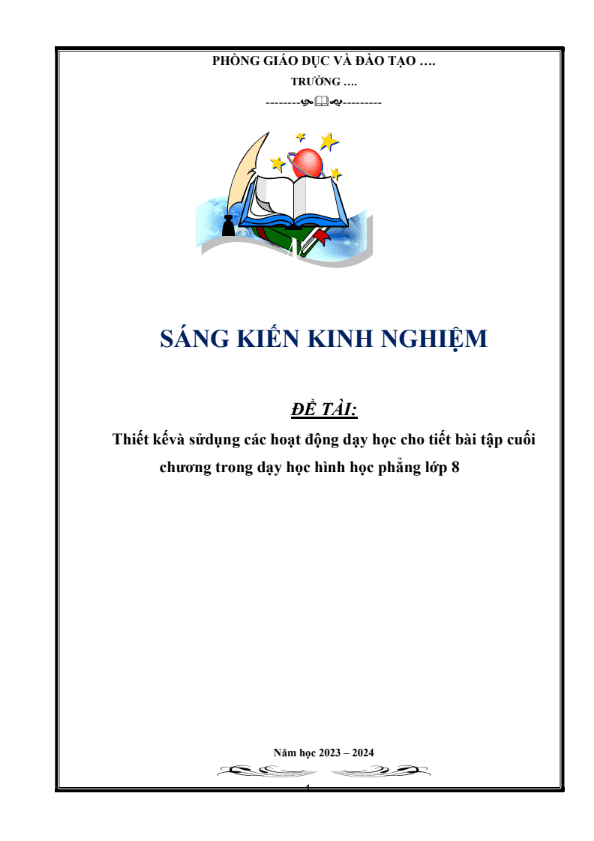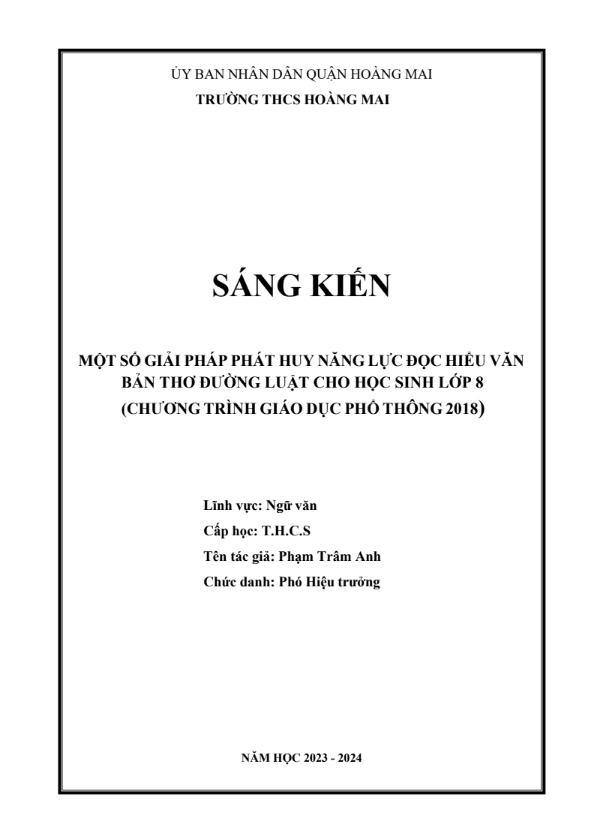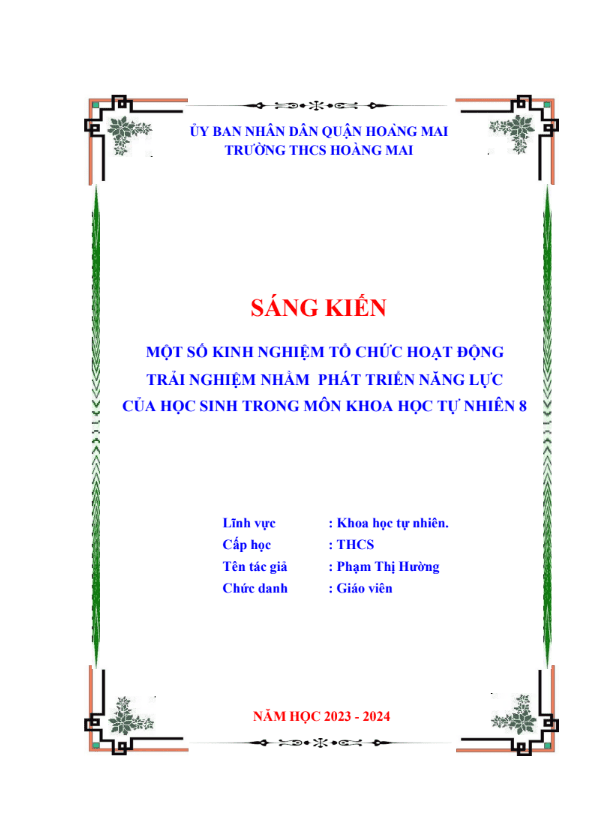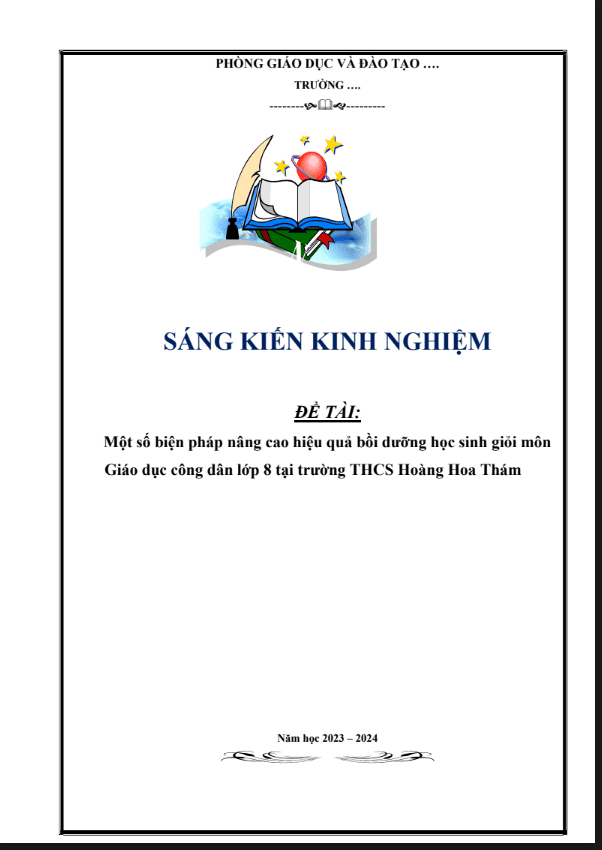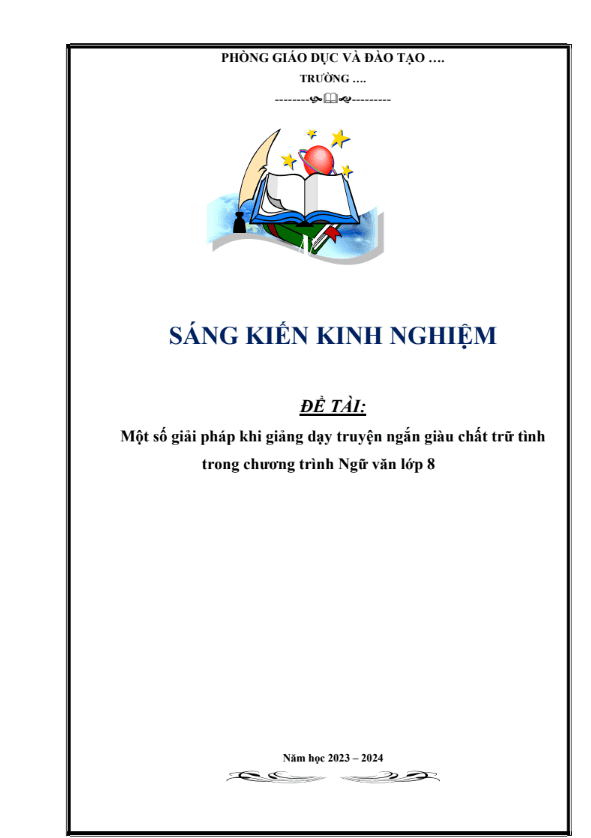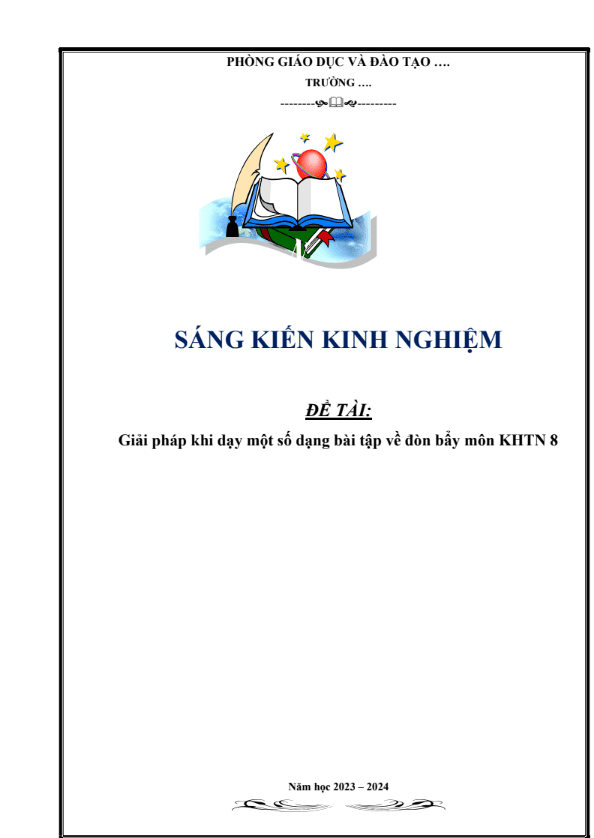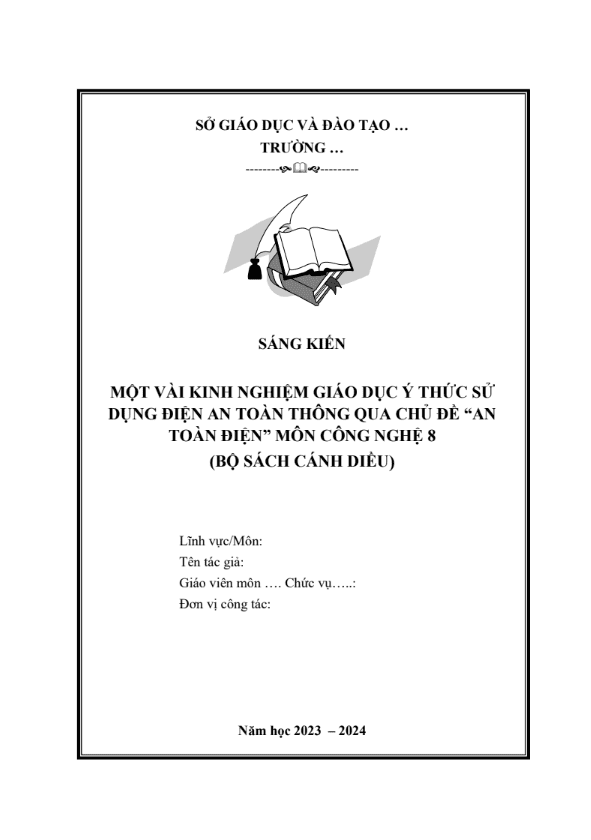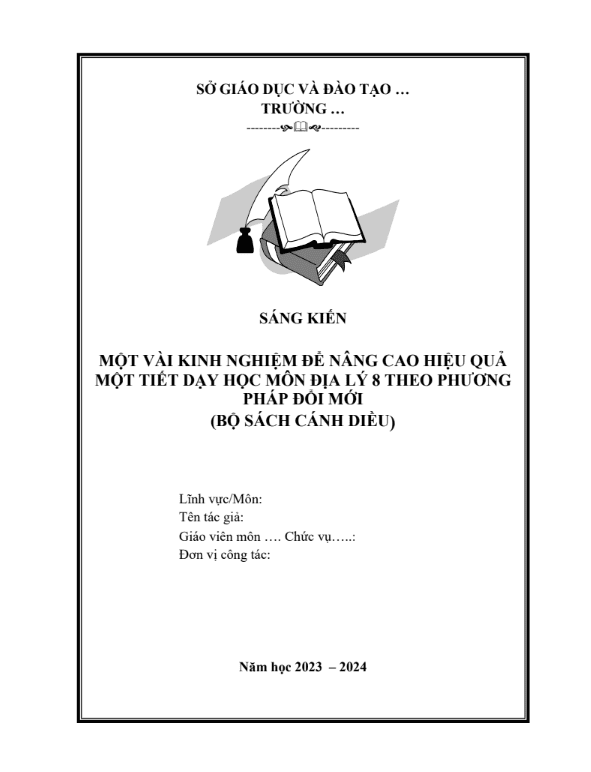SKKN The innovation of regular oral checking for grade 6 students at secondary school
- Mã tài liệu: BM6126 Copy
| Môn: | Tiếng anh |
| Lớp: | 6 |
| Bộ sách: | |
| Lượt xem: | 953 |
| Lượt tải: | 8 |
| Số trang: | 26 |
| Tác giả: | Lê Thị Thu Hương |
| Trình độ chuyên môn: | Thạc sĩ giáo dục |
| Đơn vị công tác: | Trường THCS Phú Lãm |
| Năm viết: | 2020-2021 |
| Số trang: | 26 |
| Tác giả: | Lê Thị Thu Hương |
| Trình độ chuyên môn: | Thạc sĩ giáo dục |
| Đơn vị công tác: | Trường THCS Phú Lãm |
| Năm viết: | 2020-2021 |
Sáng kiến kinh nghiệm “SKKN The innovation of regular oral checking for grade 6 students at secondary school” triển khai gồm các biện pháp nổi bật sau:
*. Innovating the preparatory stage for oral check
*. Innovating time for regular oral check
*. Innovating forms and contents of questions in the regular oral check
2.3.2. The tasks, objects and time for research
– Person giving comments
– Language and attitude for comment
2.3.3. The methods for implementation
2.3.4. Some demonstrations for research
Mô tả sản phẩm
- INTRODUCTION
1.1 Reasons for choosing the topic
In the process of teaching, testing and assessment of students’ learning outcomes is an important stage to determine the academic achievement as well as knowledge and skills that students accomplish.
For students, the central character of the teaching process, testing and assessment have the role to promote the learning process for continuous development. Through test results, students can self assess their own gain in order to review themselves, consolidate and supplement to complete the system of education with the operation of their own thinking.
For teachers, test results and assessment helps each teacher self evaluate their teaching process. Thereby, they can constantly improve and perfect their professional qualifications and teaching methods.
1.2 Aims of the research
Results of assessment also helps education managers have grounded basis to build a team of qualified teachers, develop the new directions for the content, methods and forms of educational institutions in accordance with the characteristics of their schools.
1.3. Scope and research methodology
Along with innovative textbooks and teaching methods, the innovation of assessment stage is very important in the process of teaching and learning in general, as well as the process of teaching and learning English in particular. Innovative teaching methods and assessment are two activities that are closely related to each other. Innovation of testing and assessment is the dynamics of innovative teaching methods, contributing to the objectives of education and training. Innovating assessment includes many stages, contents, steps in which the regular check by eliciting students is very important because this is a routine operation taking place continuously. This kind of assessment is an important activity because it takes place not only at the beginning of each lesson but also occurs throughout a lesson. If teachers neglect to check students regularly, the process of students’ achieving knowledge may be interrupted, leading to the shortage of needed the knowledge and skills for each lesson. This will affect the results of the periodical tests. In fact the oral check in English class today is inadequate due to the pressure of knowledge and skills needed to transmit and acquire in each lesson so the time spent for checking students orally is very little, maybe or even ignored. Besides, the majority of students are passive, which means that they are familiar with rote learning to cope. Even some of them lack of basis knowledge and they are lazy in studying previous lessons. Accordingly, I am concerned and boldly propose the teaching initiative “Innovating the method of oral check for students in English lessons” to help children learn proactively, perceive knowledge and skills in an exciting and comfortable way as well as create a lively atmosphere in English lessons.
- MAIN CONTENT
2.1. Theoretical background
In the present case, teaching does not involve what to teach but also how to teach. Innovating teaching method is an urgent requirement to improve the quality of teaching. Innovating teaching methods requires synchronic change from textbooks, teaching methods to testing and assessment of learning outcomes. Testing and assessment have an important role to play, directly impacting on improving the quality of training. Teaching and learning should always have the feedback to adjust timely for creating the highest efficiency which is best reflected through the quality of students’ learning. Regular check often helps teachers adjust and supplement the knowledge, skills, attitude proposed in different subjects, which enables students to form the suitable motivation, learning attitude to accumulate necessary knowledge and skills.
The results of testing and assessment are the basis for adjusting teaching activities, learning activities and educational management. The false results of testing and assessment lead to false statements about the quality of training, which causes great harm in the use of human resources. Therefore, innovating testing and assessment becomes urgent needs of education and society today. Precise, realistic objectives testing and assessment results will help learners become confident and enthusiastic, which develops their innovative capacity in learning. Therefore, in order to implement the process of testing and assessment effectively in different subjects in general and English in general, every teacher needs to understand and grasp some knowledge related to process of testing and assessment.
2.2. Practical background
- Testing
In the Vietnamese Great Dictionary, Nguyen Nhu Y defines testing as real and actual consideration. According to Buu Ke, testing is the scrutiny, review of work, consideration of the actual situation to assess and comment. Meanwhile, Tran Ba Hoanh states that testing provides facts and information as a basis for the evaluation.
To conclude, scientists and educators agree that testing is to collect data and evidence, examine and review the actual work to evaluate and comment.
- Assessment
Assessment is the process of forming judgments, judgments about the results of the analysis based on the information collected, collated with the objectives and criteria set out, in order to propose appropriate decisions to improve the situation, further enhanced the quality and efficiency of work.
Assessment in education, according to Duong Thieu Tong is the process of collecting and processing time, systematic information on the status and effectiveness of education. Considered the learning goals as the basis for the policy, measures and actions in the next education are put forward. It can be said that the assessment is the process of collecting analyze and interpret information in a systematic way to determine the reach of the educational targets to the students. Evaluation can be done by means of quantitative or qualitative methods.
In summary, assessment is making the judgmental conclusions about student performance. In order to assess the learning outcomes of students, the first step is to check and review the entire their learning process, then proceed to collect measurement information needed, and finally make a decision. Therefore testing and assessment of students’ learning are two stages closely related to each other. Testing is aimed to provide information to evaluate and assessment is carried out through the results of the test. Two stages are combined into the unified process named testing – assessment.
*. The forms of testing & assessment in the teaching process
+ The forms of testing
In the teaching process, there are four forms of the following tests:
– Regular oral check
– 15 – minute test
– 45 – minute test
– End- of- the- semester test
+. The forms of assessment.
In the teaching process, there are three main forms of assessment as below:
– Diagnostic assessment: Conducted before teaching a program or an important issue, which helps teachers understand the situation of the relevant knowledge with students, which knowledge students masters and lack … to decide how to teach appropriately.
– Sectional assessment: Conducted many times in order to provide feedback to teachers and students timely to adjust teaching and learning ways, commenting partial results to implement the schedule suitably.
– Conclusive assessment and decision making: Conducted at the end of courses with exams to assess the overall study results and compare them with those goals, then decide specific measures to teach and help students
TÀI LIỆU LIÊN QUAN
- 0
- 114
- 1
- [product_views]
- 2
- 163
- 2
- [product_views]
- 3
- 183
- 3
- [product_views]
- 0
- 124
- 4
- [product_views]
- 0
- 134
- 5
- [product_views]
- 0
- 109
- 6
- [product_views]
- 5
- 101
- 7
- [product_views]
- 7
- 117
- 8
- [product_views]
- 1
- 174
- 9
- [product_views]
- 8
- 179
- 10
- [product_views]

